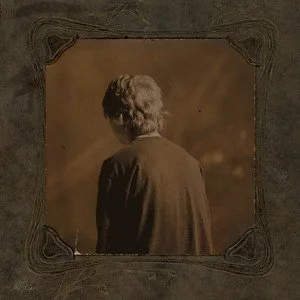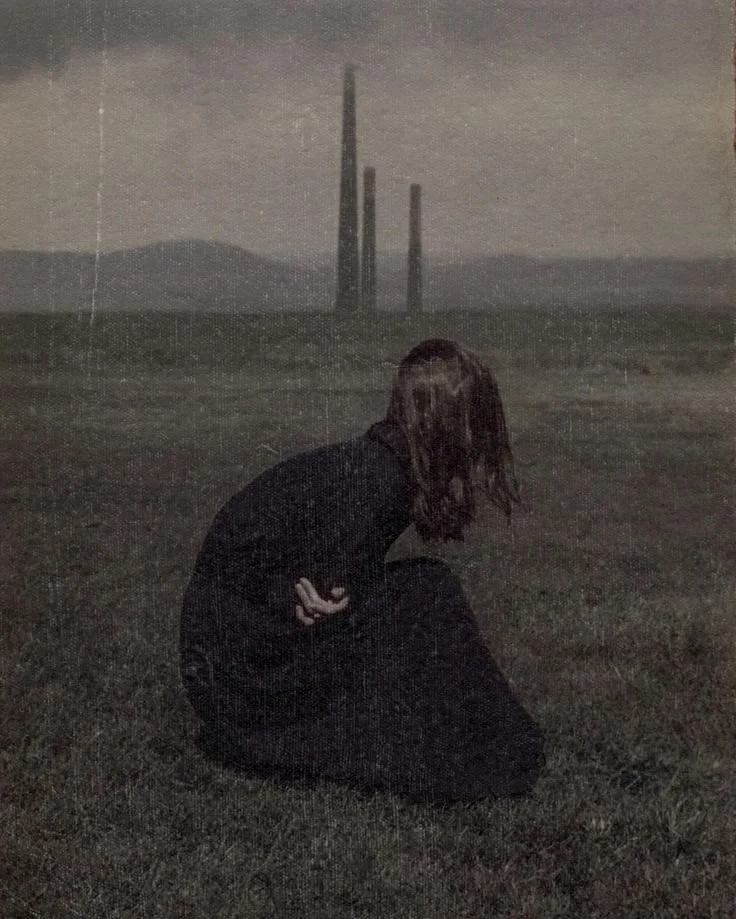The Love, Life, and Death of Ethel Cain: A Review
By Carolina Dionísio
After the release of Perverts, a mostly drone and ambience album, Hayden Anhedönia steps back into Ethel Cain’s Southern Gothic fictional life with Willoughby Tucker, I’ll Always Love You.
Set in the mid-1980s, the ten-track album serves as a prequel to her debut Preacher’s Daughter (2022), which explores Ethel’s journey as the daughter of an abusive, incestuous father in a southern town, before she ends up murdered and cannibalized at the hands of her boyfriend after a life of violence, addiction, and prostitution.
If you’re familiar with Ethel’s style and lyricism, then you’re used to the graphic descriptions, raw agony and sorrow, and overall pensive and melancholic themes. Her work was always meant to be used as a form of escapism for Ethel herself as she learned how to deal with her own traumas and grotesque memories. Preacher’s Daughter is and will always be an album that made me extremely uncomfortable at times in the best way possible, because it is so incisive and thought-provoking.
However, this new album made me know a whole new level of sentiment.
Image Sourced through Pinterest
Willoughby Tucker, I’ll Always Love You traces a doomed romance between young Ethel and her high-school love: Willoughby Tucker himself. We had a glimpse of their relationship in Preacher’s Daughter, mainly on track 3, A House in Nebraska, in which Ethel speaks about their hopes of fleeing together, marrying, and settling in a house in Nebraska, but this dream is crushed by the cruel realization that they could never run far.
Also in Preacher’s Daughter, we learn that Willoughby left Ethel, which automatically set her up for her own demise. His departure made Ethel meet a new man called Logan, who ultimately leads her down a path of criminal acts, addiction, and prostitution due to the lack of opportunity in the city. Ethel’s life after Willoughby is just a chain reaction of decisions and events that will only end with her own death and consumption in a Florida basement.
But in Willoughby Tucker, I’ll Always Love You, we get to see how Ethel lived and thought and processed feelings before all the bad things started to happen. We drift into a more ambient synth-pop that is both nostalgic and dreadful, with gut-wrecking lyricism of desperate romanticism and doomed femininity.
The album opens with Janie, an atmospheric track that resembles a soft-spoken prayer towards a friend or a sister, or even an alter ego of Ethel herself. We then move on to songs like Nettles and Dust Bowl, that perfectly capture the innocence of a teenage crush, but also the despair and obsession that only a first love can make you feel. Fuck Me Eyes introduces a new, perfect girl and all the insecurities that come with her through a more pop-sparkly rhythm. We are both jealous but also yearning, because this girl is not only pretty, but free. I think Ethel’s take on teenage girls' longing is immaculate.
In the midst of it all, we have A Knock at the Door, Radio Towers, and Tempest, in which we can clearly notice the influence of Perverts. These are songs with little lyrics, just some adlibs, in which she allows the static drone synth to really speak for itself.
We also have Willoughby’s Theme and Willoughby’s Interlude, taking the spots of tracks two and five, respectively. These are also songs with no lyrics whatsoever. Although I love Ethel’s angelic vocals, I personally loved the lack of. It feels like those moments when we can’t translate what we’re feeling into words. These are both very slow melodies, but the Theme is much heavier and mournful — a sense of impending doom. Willoughby is not just a teenage crush, but an object of utter affection that has the power to ruin Ethel, which he will.
Image Sourced through Pinterest
We finish the album with Waco, Texas, a 15-minute-long track of the most beautiful poetry. We’re met with a soft intro until Ethel sings “my honey’s heart is blue and a second offbeat”, which immediately has me kneeling on the floor. Throughout the entire song, her voice seems to be constantly tired as she makes an effort to reach the higher notes, as if she does not want to be seen or heard anymore. Her heart is broken. Her lover is broken. They are done, as she inevitably predicted despite her prayers and wishes.
The lyrics go back and forth between her hopes of what they could’ve become, and her desire to vanish — or even die — as the grief of their love sinks in. She confesses her love for Willoughby and blames herself for hurting him like she knew she would, but also questions if she ever truly knew him or held the real him. It seems as if there were always two versions of him, and she didn’t know which one she’d get. She quietly rambles about their future kids and her dreams of Nebraska, then states she’ll never forgive herself.
“I can wait if I want / but it’ll never be good enough, like I want to believe it is”, she sings. Then, her voice drifts into the air like dust in the breeze and mixes with a lonely piano. The end.
In terms of storytelling, I truly believe no one is doing it like Ethel. She introduces all these very real and raw themes that are always intertwining in cycles of repression, violence, hope, and yearning. I love how her lyrics are always poetic and heartfelt, but you don’t need a dictionary to understand them. Ethel is truly just a teenage girl with feelings known to us all.
From the moment she was born, her life was drawn out with a single line of chalk, and I feel like Ethel is constantly trying to erase it and to break the chains of her bloodline, but she just can’t. There’s all this rage and despair towards her family tree, but also the sadness and the guilt of a girl torn between what she wants to do and what she has to do.
Image Sourced through Pinterest
Preacher’s Daughter will always be one of my favorite albums of all time because of how easily Ethel created a whole life and story with only 13 tracks, and how beautifully she depicted trauma and haunting memories that none of us should bear. There’s this misconception that one can only write about blood in a ghoulish way, but Ethel always laces violence with tenderness and sweet words, as if she doesn’t want to hurt anyone despite her own hurting. Even in Strangers (track 13 of Preacher’s Daughter), when she’s being cannibalized, she says to her mother, “Don’t think about it too hard or you’ll never sleep a wink at night again,” and “Don’t worry about me”.
Willoughby Tucker, I’ll Always Love You doesn’t stay far behind on my list of favorite albums. I confess I was a bit reluctant because Ethel said she was struggling with finding her voice and sound, and just overall having love for what she was creating. But I think she completely succeeded, and we can totally hear her passion in the details of each melody and each lyric. This album is a love letter of grace amid the doom.
R.I.P., Ethel Cain, I’ll Always Love you.



